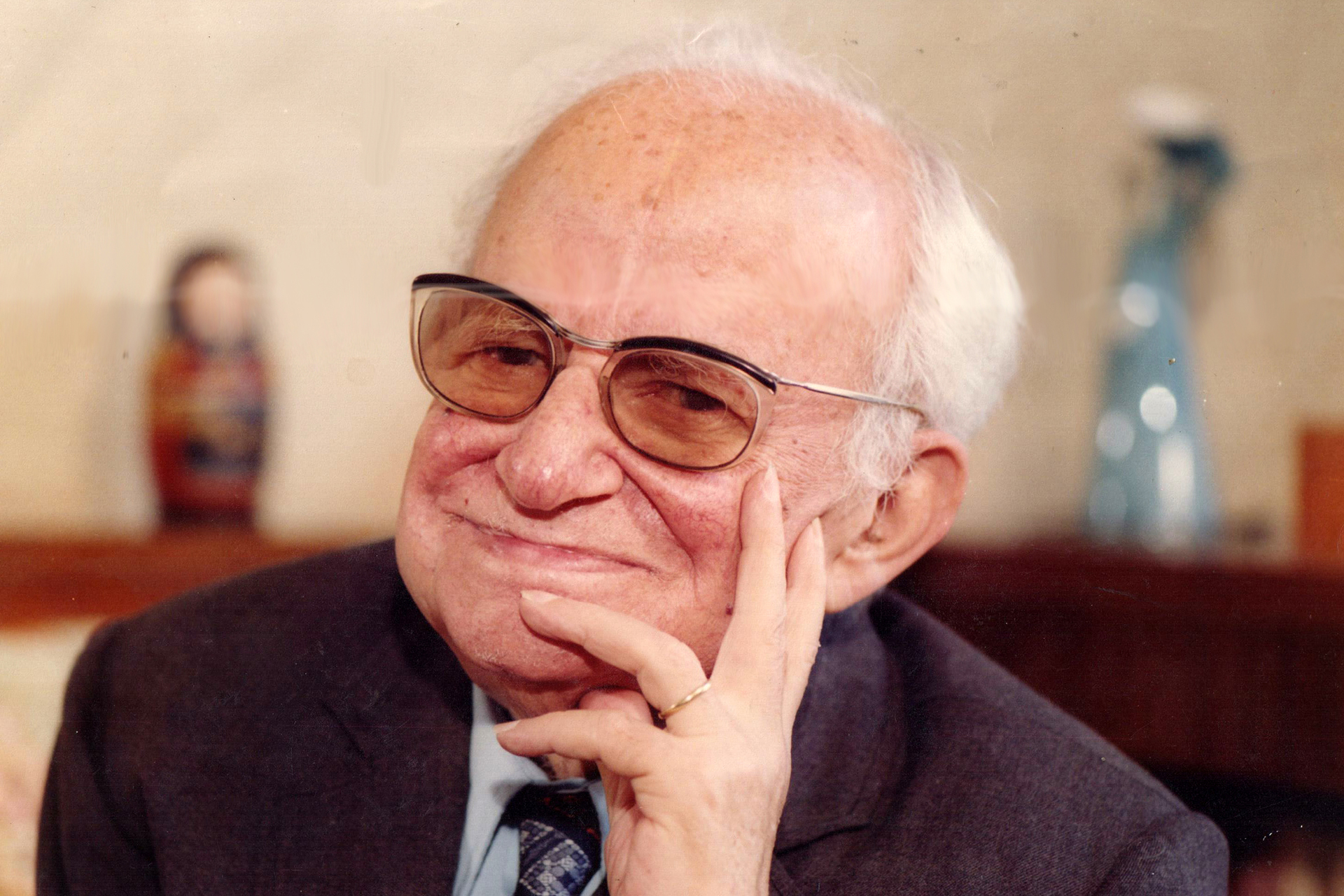On January 17, 1905, the teacher writer Yahya Haqqi was born in the Darb al-Maida neighborhood located behind the Sayyeda Zeinab Mosque and Shrine in Cairo. He was Turkish by father and mother, and his parents spoke Turkish and Arabic, believed in Islam, and adhered to its teachings.
“Yahya” was talented in writing since his childhood, but his uniquely fertile life path made him a teacher for Arab creators, in the field of short stories in particular. He was one of the builders of the “Egyptian Ministry of Culture” in the 1950s, so he held the position of director of the “Arts Department” for three years. years, and held the position of editor-in-chief of “Al-Majalla” magazine for eight years (1962-1970).
It is the magazine whose headquarters was transformed into a school for teaching the arts of literary writing to Egyptian innovators, and the studies published in it were a school for Arab innovators in the East and Morocco. He is the last “innovator” to take over cultural positions without a “doctorate” holder. The one who helped him in “the magazine” was “Dr. Shukri Ayad” is a well-known academic and critic, and Dr. Abdul Qader Al-Qat, who took over its editor-in-chief after him, is also a well-known critic.
Development of the Arabic language
During the same period, Naguib Mahfouz was an employee under his leadership in the Arts Authority, and when Hassanein Heikal chose the team of creative people to be part of the team of writers at Al-Ahram, Yahya Haqqi refused to accept the assignment, and chose to write in the Al-Taawoun newspaper, which Distributed to “agricultural associations”; Because he knew that “Al-Ahram” was not as free as he wanted it to be, and “Al-Taawoun” was distributed to the farmers, so their educated children would read it, so his message, which he wanted to reach the people, would be delivered to the people without clashing with the “Censor” – Hassanein Heikal – the official spokesman for “Gamal Abdel Nasser.” “And his partner in power.
Anyone who monitors the social journey of the late writer Yahya Haqqi will be struck by two things: The first: He was Turkish by race and culture, but he loved Arab culture, and read its origins and what the pioneers wrote, from “Al-Jahiz to the historian Abdul Rahman Al-Jabarti.”
He had a long history in developing the Arabic language to keep pace with the developments of the era, after Taha Hussein, and this is what made us consider him the “second teacher.” Because the generation of “Taha Hussein, Ali Abdel Razek and Mustafa Abdel Razek” transferred the Arabic language from “Al-Azhar Museum” to the hustle and bustle of political and cultural life, and there is a famous article written by “Taha Hussein” in which he mourned the time of “Mustafa Lutfi Al-Manfaluti”, stripped him of the status of “writer” and destroyed his project that It was written in the language of the exquisite rhyme, assonance, counterpoint, alliteration, and other rules of ancient rhetoric.
In the heart of Upper Egypt
The second thing in Haqqi’s journey is that he entered Egyptian society through several doors, the first of which was: “education” in private schools, then “law school”, and from there to “prosecution” and “lawyer”, and he refused to remain in this context, but the family – which… Among them were senior employees – I appointed him to the position of “Administration Assistant” in the year “1927”, and this job placed him in the heart of Upper Egypt, so he worked in “Manfalut” in the “Assiut” Governorate until the end of the year “1929”.
His legal job required him to legally regulate the violations and crimes committed by the “peasants” and to facilitate the tasks of the “prosecutor” and the judge. Because the police officers in that period were not students of law, and the “administration assistant” was responsible for drafting incidents in a legal form, and this job was the real birth of the young Turkish man “Effendi” who was born in “Darb Al-Maida.”
It is what made him aware of the appearance of “donkeys” and made him aware of the planting seasons, the diseases that kill farmers, the conflicts that occur between the owners of agricultural lands and the wage-earners, and the “peasant cunning” that the farmers practice to escape from the cruelty of the “government,” which represents the first enemy of the Egyptian farmer since the era of the Mamluk tax collectors. The cruel ones who coerced the people, stole their food and taught them that “the government’s horse is lame” but capable of “hunting deer.”
The theory of verbal determinism
All this inheritance of hatred was seen by Yahya Haqqi and he wrote it in his short stories, and we find it in his collection titled: “Mother of the Disabled,” and his collection: “Blood and Mud.” Before these two collections, the “Upper Society” was not known to writers or readers. Even the autobiography “The Days,” in which “Taha Hussein” depicted his life in “Minya” in northern Upper Egypt, appeared in the year 1929, and it does not contain anything that can be considered a monitoring of the details of life in “northern Upper Egypt.”
As for Haqqi, he achieved two achievements with his two collections, the first of which was that he presented the “short story” in its refined European form, devoid of the old language, based on depicting the “scene” with what it entails of “narration” and “dialogue.”
In his entire creative project, he supported a theory he called “the inevitability of verbal expression,” and he explained it in his critical articles. He said: The “word” capable of expressing the meaning that the writer wants is paramount, and its existence is “inevitable” without regard to its “eloquent or colloquial” origin.
This was an important step, which made Arab innovators take the risk of respecting the local “spoken dialects,” as they were the natural development of the language, and not the “intentional demolition of the language,” as the Al-Azharites saw, shepherds of the heritage inherited from the Abbasid and Umayyad eras.
Embrace the talented
On the human level, Yahya Haqqi presented throughout his life (1905-1992) a model of the intellectual teacher, who teaches young creative people, seeks to discover talented people and considers them the true “wealth” of society. He was the one who discovered Dr. Jamal Hamdan, the well-known political geographer, and made him one of the writers of the magazine “ the magazine”.
He was the one who nurtured the talents of the “generation of the sixties”, and among their celebrities were “Abdul Wahab Al-Aswany”, “Yahya Al-Taher Abdullah”, “Ibrahim Aslan”, “Mohamed Romish”, “Abdul Hakim Qasim” and “Gamal Al-Ghitani”, and he was not satisfied with direct teaching on “the balcony of the headquarters”. Rather, he published books that are considered important references for those who wish to master fiction, and one of his books that he devoted to this purpose is “A Song for Simplicity,” which collects everything a budding writer needs in order to become a storyteller or novelist proficient in the tools of the art of storytelling.
He was the one who developed a plan to preserve folk arts. The operetta “O Night, O Eye,” in which the spontaneous artists participated, was the first nucleus from which emerged the “Nile” ensemble for folk musical instruments, the establishment of the Institute of Folk Arts at the Academy of Arts, and the Egyptian government’s adoption of the “Reda” ensemble. She conducted a comprehensive survey of the various regions of Egypt, chose inherited “dances”, created paintings from them, and traveled around the world expressing Egyptian popular culture.
Retirement
He was not satisfied with his pioneering and educational role through books and articles, but after he had said his word, he retired from literary writing, and this was an unprecedented step. He explained this by saying in television and radio interviews conducted with him by Arab television and radio stations: The smart “writer” is the one who does not repeat himself, He retires if he feels that he will not add anything new.
He graciously donated his valuable library, which included thousands of important books, to Minya University in the 1980s, a university that was poor, and his intention was to support its students with the references they needed in their studies and academic research. This is a step indicative of the love of the person of memory for people and his keenness to give them ownership. Knowledge. This library is the fruit of more than a quarter of a century of his life, which he spent in the capitals of Europe, researching, studying, and acquiring books from reliable sources.
During that period, he was working in the Egyptian Foreign Ministry, until he reached the rank of “Minister Plenipotentiary” for the Egyptian royal government in “Libya” and “the Kingdom of Saudi Arabia.” He married a French visual artist and was exempted from working in the Foreign Ministry according to Egyptian law. He returned to the homeland and fulfilled his mission honestly until The last day of his life.




